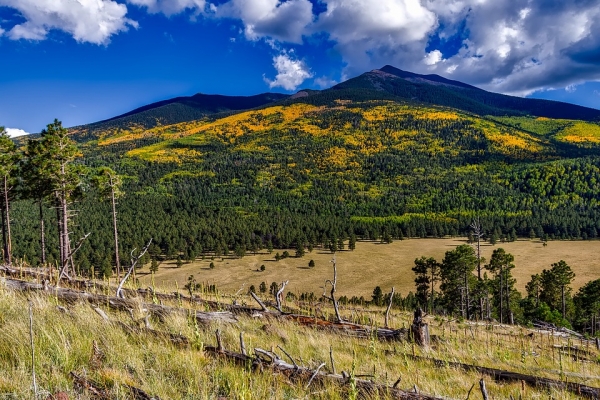Warmer and drier climate conditions in western U.S. forests are making it less likely that trees can regenerate after wildfires, according to new research published in the Proceedings of the National Academy of Sciences.
Importantly, the research also finds that ecologically based forest management can partially offset climate-driven declines in tree regeneration by limiting fire-caused tree death, but only if action is taken quickly. This study provides timely information to optimize new state and federal initiatives to increase the pace of ecologically based forest management across millions of acres of Western forests.
The Climate Change Challenge
Forests are adapted to different types of fire across the West, but hotter and drier conditions in recent decades have intensified the way fires burn, resulting in more trees being killed. All of this can result in fewer seeds available for forests to regenerate after wildfires. Even when seeds are available, a warming climate is increasingly limiting the chances that seedlings can establish and grow.
“Climate change increasingly limits tree establishment after wildfires because seedlings can be killed by hot temperatures and dry conditions,” says the study’s lead author, Kim Davis, who completed the study at the University of Montana, now a research ecologist for the Forest Service at the Missoula Fire Sciences Laboratory.
Read more at The Nature Conservancy, Arizona
Photo Credit: 12019 via Pixabay


